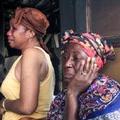 象牙海岸衛生部官員11日表示,有毒廢棄物污染事件截至目前為止已有6人喪生、約9000人中毒送醫。環保人士認為,國際法雖有針對全球有毒物質交易制訂相關保護法規,以確保人類不受到污染危害,但此次在象牙海岸阿必尚所發生的污染事件卻是一個慘痛的警訊,它證實了全世界都沒有確切執行這些國際法規。
象牙海岸衛生部官員11日表示,有毒廢棄物污染事件截至目前為止已有6人喪生、約9000人中毒送醫。環保人士認為,國際法雖有針對全球有毒物質交易制訂相關保護法規,以確保人類不受到污染危害,但此次在象牙海岸阿必尚所發生的污染事件卻是一個慘痛的警訊,它證實了全世界都沒有確切執行這些國際法規。
此外,根據巴塞爾行動網(BAN)之有毒廢棄物貿易專家帕奇特表示:「富國傾倒有毒廢棄物至弱國其來有自,象牙海岸此次的悲劇,僅是最新的一次案例而已。」
帕奇特說:「我們之前就來過了,這看來很像是1988年的事件又重來一遍,只是這次有更多的證據顯示,死亡與疾病是直接來自廢棄物交易。諷刺的是,如今我們有國際法規來控制及禁止全球傾倒廢棄物的問題,但是卻仍缺乏履行這些得來不易法令的強制執行力。」
1989年巴塞爾公約中訂定的國際危險廢棄物條約,是用來制止已開發國家,將有害的危險廢棄物棄置世界上其他落後的國家。這項行動起因於工業化國家涉嫌將有毒廢棄物棄置在落後國家而震驚國際的多起醜聞。
但是協議上並沒有禁止廢棄物輸出至除了南極洲以外的地方,而會議上的幾個團體很快就發現條約訂定得不夠嚴謹。1995年此條約的修正案訂定,禁止已開發國家輸出廢棄物至其他國家。
修正案已經在歐盟開始實行,但是尚未遍行全球。還有許多國家並未認可條約的內容。名單中包含反對此禁令的富有國家,像是美國、加拿大、澳洲,以及發展中國家,像是印度、巴基斯坦、孟加拉、菲律賓,以及諷刺的是,象牙海岸自己本身也未簽署。
象牙海岸政府當局表示,這批廢棄物是上個月由荷蘭屬貿易商Trafigura Beheer的原油油輪運送過來的。約400公噸的廢棄物被棄置在至少8處人口密集的市區內。
油性廢棄物所產生的毒氣,其中特別是硫化氫,造成西非國家中大城市的居民生病甚至致命。象國總理為了這次弊案,上星期請辭並解散內閣32名成員。
The toxic waste tragedy in the Ivory Coast has now claimed six lives and injured some 9,000, health officials said Monday. Environmentalists called the events in the Ivorian city of Abidjan a sad reminder that the world is failing to implement and enforce the international law created to protect people from the global trade of hazardous materials.
Furthermore, the Ivory Coast tragedy is only the latest example of a resurgence of toxic waste dumping by rich nations in poor ones, according to Jim Puckett, a hazardous waste trade expert with the Basel Action Network.
"We've been here before," Puckett said. "This looks like 1988 all over again but actually there is even more evidence now of death and disease from waste trade than ever before. Ironically today we have the international rules to control or prohibit such global dumping but we are lacking in the diligent enforcement and implementation of these hard won laws."
The 1989 international hazardous waste treaty, known as the Basel Convention, was designed to curb the prevent the developed world from transferring hazardous wastes to the world's poorer countries. It was forged in the wake of several international scandals involving the dumping of toxic wastes in poor nations by industrialized countries.
But the accord does not prohibit waste exports to any location except Antarctica and several parties to the convention were quickly convinced it did not go far enough. In 1995, an amendment to the treaty was established to prohibit waste exports from developed nations to the rest of the world.
The amendment has been implemented in the European Union, but has not entered into force globally. A long list of countries has failed to ratify the treaty. The list includes wealthy nations who oppose the ban, such as the United States, Canada and Australia, and developing countries, such as India, Pakistan, Bangladesh, Philippines, and - ironically - the Ivory Coast.
According to authorities with the Ivory Coast government, the waste was sent to the city last month by the Dutch commodities trading firm Trafigura Beheer from a gasoline tanker. Some 400 tons of the waste was then dumped in at least eight sites in the densely populated city.
Fumes from the oily waste, in particular hydrogen sulfide, have killed and sickened residents of the West African nation's largest city. The Ivory Coast's prime minister dissolved his 32-member cabinet last week in the wake of the scandal.





